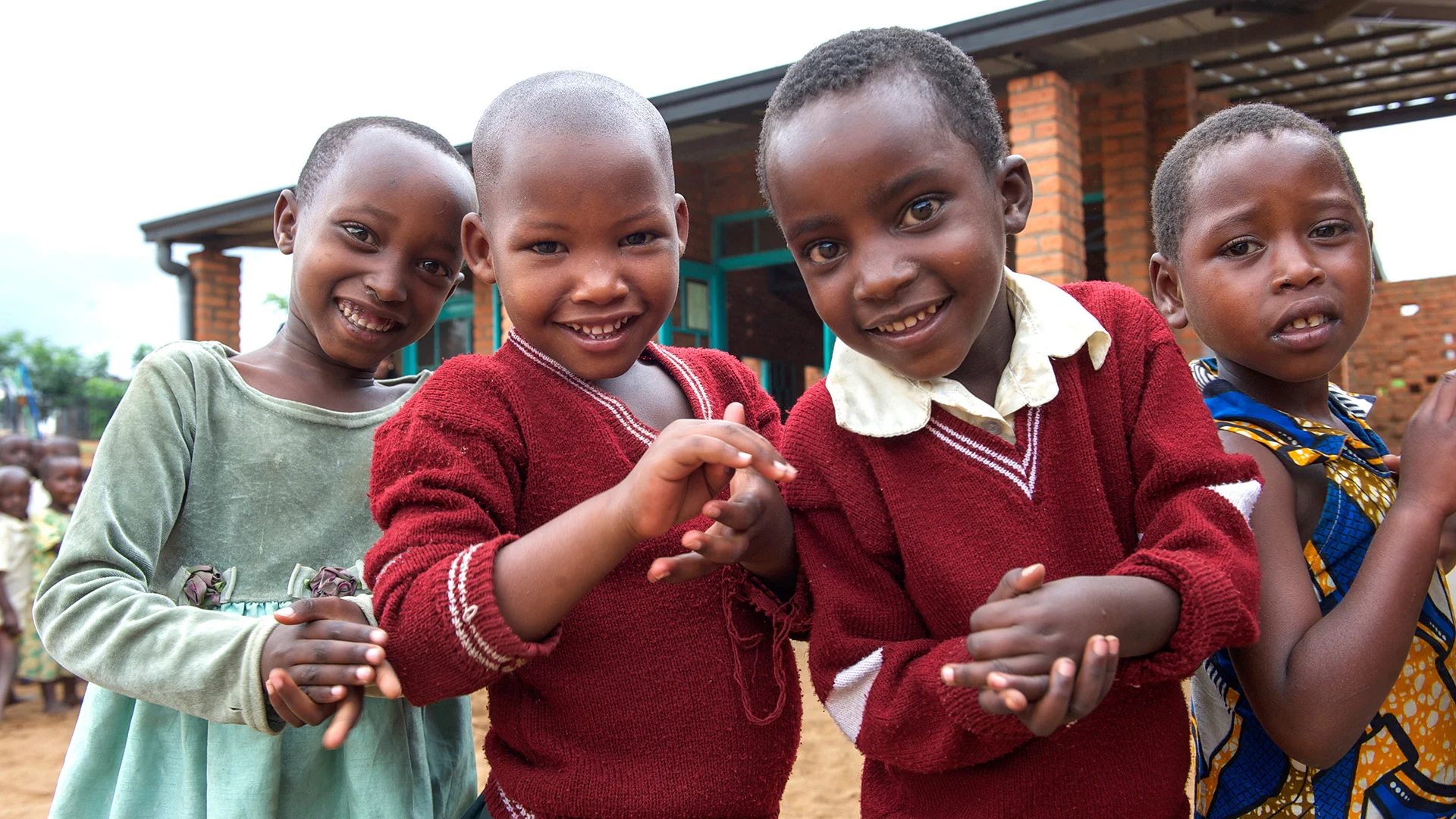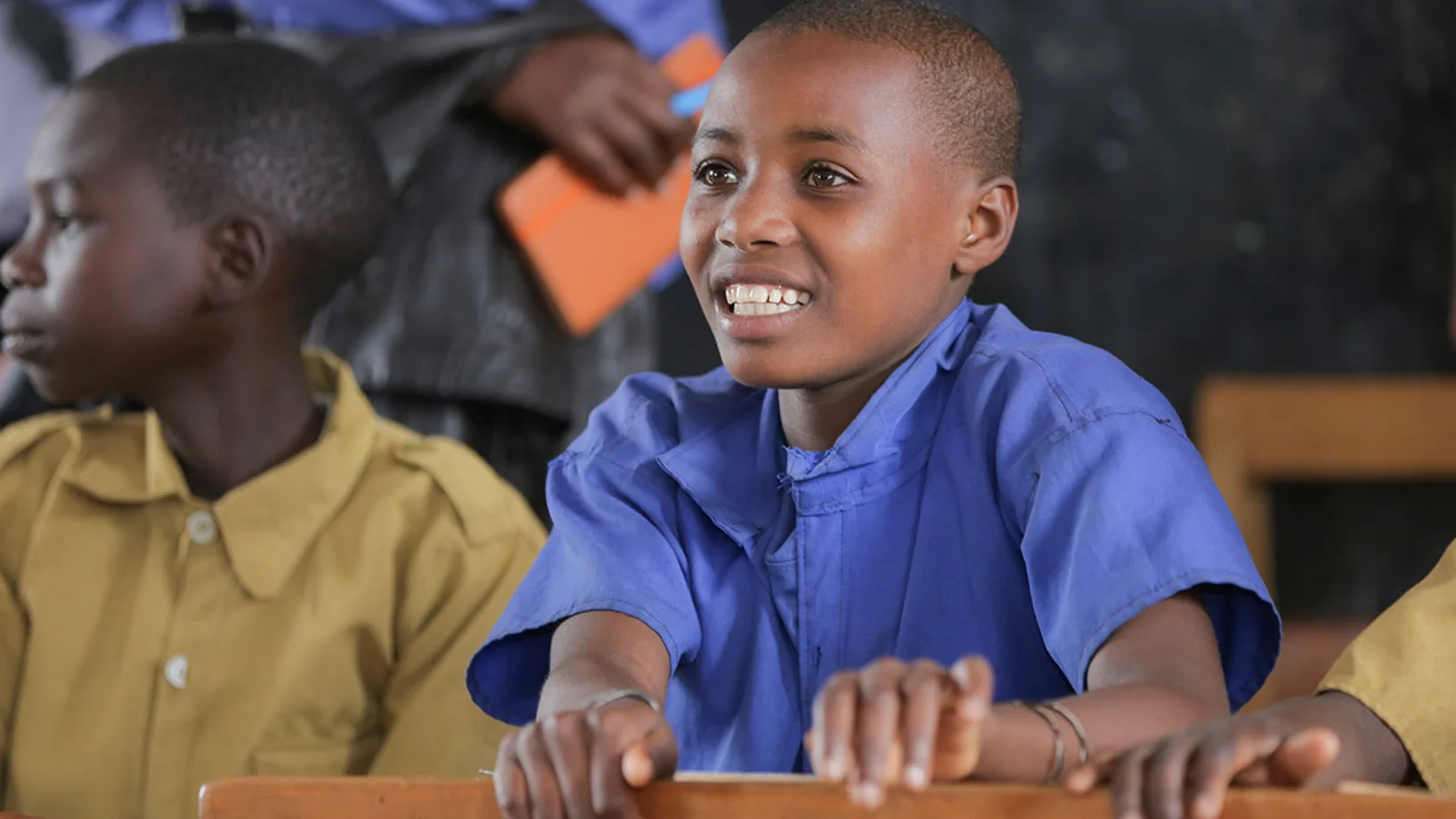Almost 30,000 Burundian children live in the Mahama refugee camp in Rwanda. UNICEF ensures that these girls and boys can have a childhood and a future in spite of the difficult conditions.
The situation
The East African country of Burundi is affected by a conflict that began in the former capital of Bujumbura in 2015 and gradually spread to rural areas. Fear of political persecution, as well as pervasive hunger, have since forced hundreds of thousands of people to flee to neighboring Rwanda, Tanzania and Uganda.
Nearly 60,000 Burundian refugees, half of them children, have found refuge in the Mahama camp in Rwanda. But Mahama is not an appropriate place for children. They live in temporary shelters and tents, crowded together with strangers. There is not enough food in the camp, meaning that many children are forced to work. The few schools available are hopelessly overcrowded.
What UNICEF has achieved thanks to your help
UNICEF has been active in Rwanda since 1986, providing emergency relief in the country. In cooperation with other UN organizations, UNICEF works to ensure that the children and their families in the Mahama camp have shelter, are provided with water and food, can go to school and, if necessary, receive medical assistance. UNICEF also helps reunite families with children who were separated from their parents when they fled.
As part of this program, which UNICEF Switzerland and Liechtenstein supported from 2018 until December 2021, training modules were developed to train camp staff in dealing with child refugees. The program also facilitated access to psychosocial support services, such as improved child-friendly zones, for affected children.
UNICEF has implemented a child protection program at the national level to ensure the development and protection of child refugees. This guarantees that child refugees can access existing child protection services in communities and are included in the national child protection program.



